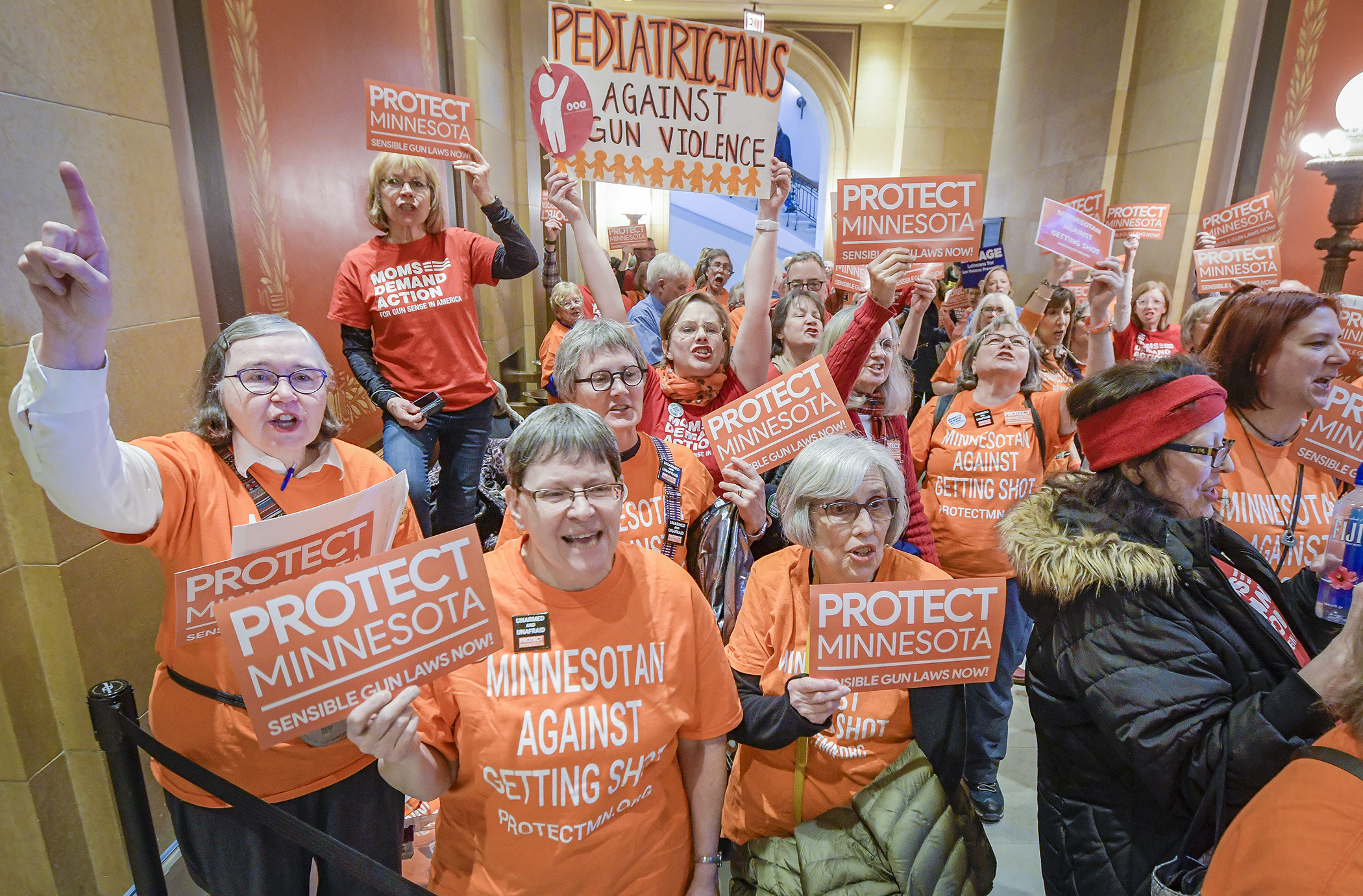House OKs contentious gun background check bill

There are two widely divergent – and highly partisan – viewpoints on HF8, which would require criminal background checks on private transfers of pistols and semiautomatic military-style assault weapons.
Proponents say the bill is a common-sense measure similar to legislation passed in other states that has successfully reduced gun violence.
Opponents say it will do nothing to reduce illegal gun sales while unduly burdening law-abiding gun owners and violating the Second Amendment.
DFL and Republican lawmakers debating HF8 Thursday closely followed that script and the DFL-majority House passed the bill 69-62, mostly along party lines.
Sponsored by Rep. Dave Pinto (DFL-St. Paul), the bill now goes to the Senate where Sen. Ron Latz (DFL-St. Louis Park) is the sponsor.
The bill was included in last year’s House omnibus public safety and criminal justice reform finance bill, but did not make it into the final law. Pinto said no changes were made to bill language after the Legislature adjourned in May 2019 and when it was taken up again in 2020.
What’s in HF8?
The bill would require that private transfers of pistols and semiautomatic military-style assault weapons be preceded by a firearms eligibility background check of the person receiving the firearm. Chiefs of police or county sheriffs are responsible for performing background checks, and must deny a transfer if the proposed buyer is prohibited from owning a gun by Minnesota law.
Private parties who transfer a pistol or semiautomatic military-style assault weapon would be required to complete a transferee permit application form, and that that record of transfer must be retained, either on paper or in digital format, by both parties for 20 years. Not retaining the record of transfer for 20 years is a gross misdemeanor.
That gross misdemeanor penalty is too severe, said Rep. Eric Lucero (R-Dayton), and too easy to unintentionally violate. He pointed out that it’s way too easy to lose a scrap of paper or to delete a file on a laptop computer over the course of two decades.
If you violate this provision, he said, “that means you are just as bad as somebody who commits a second- or third-degree DWI.”
Floor debate focuses on effectiveness of proposal
Rep. Jim Nash (R-Waconia) said he believes bill proponents have good intentions, but the proposal is fatally flawed.
“This will do nothing, not one thing,” said Nash, noting that private background checks required by the bill would “not slow down one bit” those criminals intent on committing crimes with illegally obtained guns.
Nash said it would be “ludicrous” to think that career criminals would have any motivation at all to obey the proposed background check rules.
Rep. Jack Considine Jr. (DFL-Mankato) said lawmakers still pass laws making it illegal to rob banks knowing full well that criminals will continue to rob banks.
“You’re right, criminals are not going to obey the law,” said Considine. “But we don’t throw in the towel and just give up. That’s ridiculous.”
Related Articles
Search Session Daily
Advanced Search OptionsPriority Dailies
Legislative leaders set 2026 committee deadlines
By Lisa Kaczke Legislative leaders on Tuesday officially set the timeline for getting bills through the committee process during the upcoming 2026 session.
Here are the three deadlines for...
Legislative leaders on Tuesday officially set the timeline for getting bills through the committee process during the upcoming 2026 session.
Here are the three deadlines for...